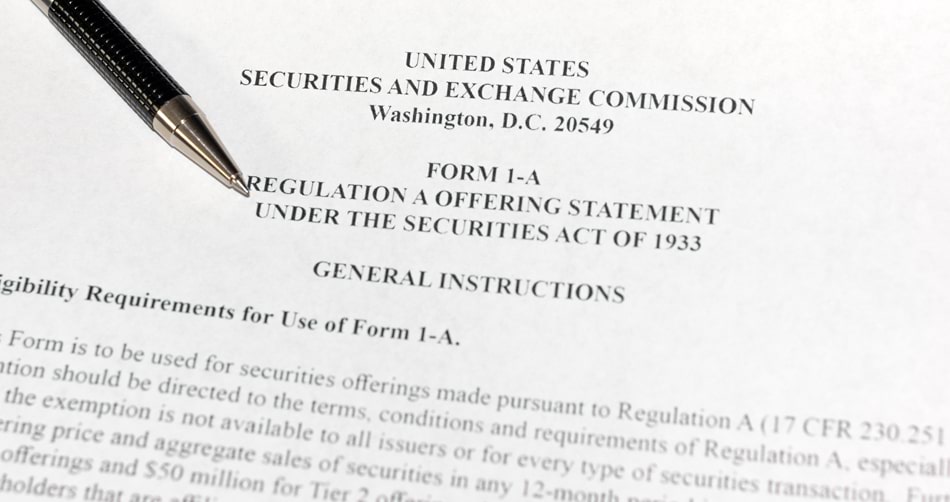Securities Law in Business Today
As an important part of business law, securities law covers the rules and regulations surrounding the sale and purchase of businesses or their assets. These transactions usually involve the transfer of stock shares and bonds, as well as loan and mortgage packages offered for sale by a financial institution. These securities can be considered a financial instrument used to represent investment in a company or a project. Securities law primarily originates at the Federal level, however individual states also have their own securities laws to regulate the issuance securities, their transactions and litigation that may arise.
Securities law is an often complex and difficult to navigate area of business law. It is strongly recommended for individuals who are in the process of creating, purchasing or selling securities to consult with an expert attorney specializing in corporate law to ensure transactions go smoothly.
Details Surrounding Securities Law

Broadly speaking, securities law is divided into three main categories, which are transactional, regulatory and litigation. The two main areas are transactional and regulatory, which are normally applicable in every situation involving securities transactions. The transactional portion of the law involves the grouping of loans or assets together to be sold as a security to a financial institution or a group of investors. After this has been completed, the regulatory portion of the law covers the issuance of these securities, which is heavily regulated by the Securities and Exchange Commission (SEC). The third portion of securities law deals with litigation situations that come up, normally as a result of investors filing suit against the issuer of the security due to allegations of fraud.
As mentioned previously, securities law exists at both federal and state levels. At the Federal level, the SEC is tasked with managing securities transactions, and all securities sold to the public must be registered with them. In addition, SEC requires full disclosure of information regarding the seller and stock offering to be made available to investors. In addition to the SEC, The Securities Act of 1934 also regulates the operation of stock exchanges and the trading of stocks and bonds.
Securities laws at the state level will differ depending on the state in which the transaction is taking place. For example, in Michigan the Uniform Securities Act (MCL Act 551 of 2008) regulates the issuance, offer, sale and purchase of securities. This largely covers the same rules and regulations of the federal securities laws, however it is specifically tailored to business in Michigan. The Securities & Audit Division covers the registration of individuals, entities and businesses that provide investment services and advice to residents as well as the registration and exemption of products. In addition to this they also handle investigations covering complaints regarding securities.
Usage and Types of Securities
The majority of financial transactions require the issuance of securities, and a good portion of those securities are required to be registered under both state and federal securities laws. Attorneys will examine the transaction and determine whether or not it should be structured in a manner that requires securities to be registered. The tax implications of a transaction have a large part to play in this process, as obviously it is wise to reduce the tax burden as much as possible for all parties involved. The lawyers involved in this process will also work to negotiate the terms of the security, prepare disclosure documentation, and negotiate agreements with any third parties that may be involved. As mentioned previously, this is the most complex part of securities law which necessitates the skills and expertise of an attorney specializing in securities law to ensure things are done correctly and in a legally compliant manner.
In the securities realm, there are two main types of offerings available – public and private. As one would expect, public offerings are when a security is offered to the public. Normally this is handled by a bank which acts as an underwriter that purchases the entire security issue for a set price in order to resell it to the public. Public offerings are heavily regulated by federal law and require a full disclosure statement to be filed with the SEC.
These statements are usually quite complicated and involve extensive investigation by lawyers into the issuers business, liabilities, financial situation and any future business prospects or opportunities. During this process there are in depth conversations between the SEC and the attorney representing the offering party. After the SEC has determined that the disclosure is satisfactory, a registration statement is made effective and securities sales are allowed to commence.
Private offerings of securities are by comparison quite simple and straightforward. These offerings usually only involve the sale of equity or debt to a limited group of investors and do not require the issuing company to file a disclosure statement with the SEC. However, a private statement of disclosure is required to be distributed to potential investors in order to protect from misleading or deceptive practices.
